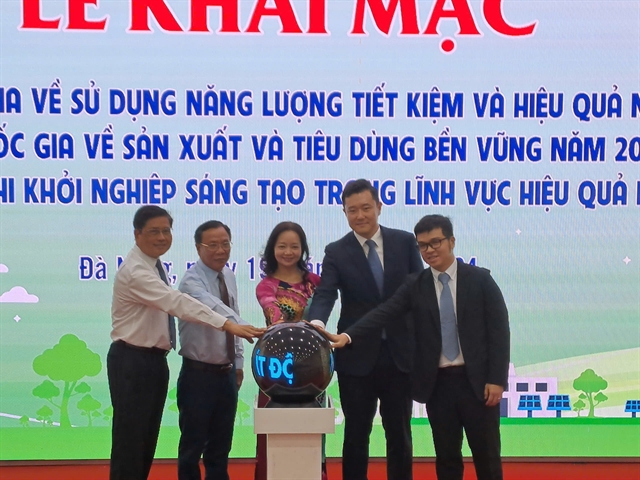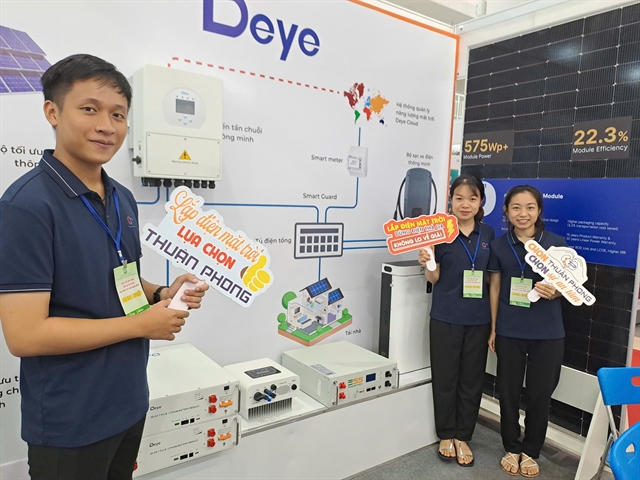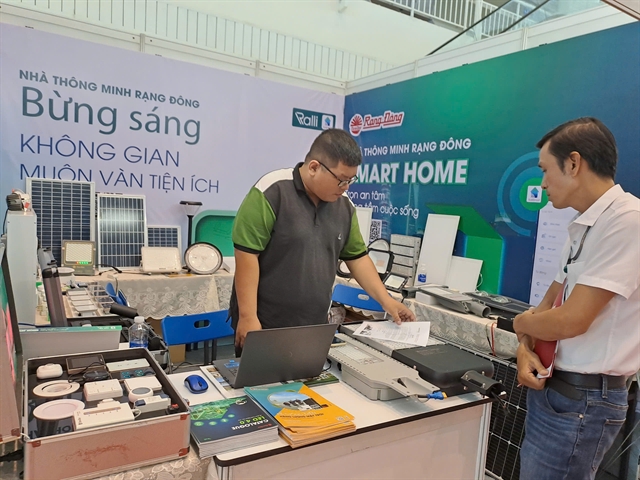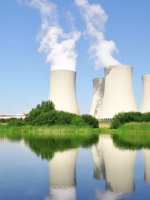
A series of action plans in green transitions and the circular economy have been built as key solutions for provinces and cities in boosting the National Energy Efficiency Programme 2019-30.
The overall aim is to save from eight to ten per cent of total national energy consumption.
Director General of the Energy Efficiency and Sustainable Development department, Nguyễn Thị Lâm Giang, under the ministry of Industry and Trade, told a conference on efficiency and sustainable consumption and production, that all efforts will be revving up to hit the net zero target.
She said 60 out of 63 provinces and cities have issued their implementation plans for the 2020-25 period and 2030, for annual energy savings.
“The target of saving from eight to ten per cent of national energy consumption – an equivalent of 50 million tonnes of oil – will be only reached by positive efforts and strict solutions and implementations from local authorities, industries, businesses and relevant agencies,’ she said.
“The energy saving programme had achieved two per cent reduction per year in 2020-23, while power loss had been controlled at 6.25 per cent,” Giang said.
She stressed that green transitions and circular economy solutions are seen as critical in accelerating the efficiency energy programme over the next five years.

From the ministry of industry and trade (MOIT), Hoàng Việt Dũng, said industry production and transportation are major energy users, with 51.9 per cent and 20.8 per cent, respectively.
He said energy demands had increased from 7 per cent in 2011-19 to 9.7 per cent in 2011-21, while the country committed to control emission rate at 9 per cent and power loss at 6.5 per cent in 2021-30.
At the meantime, 47 out of 63 provinces and cities nationwide have launched sustainable consumption and production patterns as effective solutions, following the Government call for everyone to work together to reach net zero target for 2050.
A series of saving programmes have been built including efficient use of input material, solid waste and waste water treatment for recycling, environmentally-friendly designs in industries including leather, textiles, paper, crafts, sugar and beverages, according to expert Bùi Huy Quang from MoIT.
An expert in energy saving and sustainable production, Lê Xuân Thịnh, said one garment business had recycled 3,200 cubic metres from its monthly 4,000 cubic metres water use each month.
He said a beverage factory in central Việt Nam had used 200 cubic metres of biogas from waste, to power up its production lines, while cutting emissions by 17,000 cubic metres of carbon per year.
Thịnh said businesses acknowledged that green solutions have helped them achieve multi-targets in terms of investment, energy efficiency and in winning a ‘green’ transition certificate for exporters at global markets.
Nguyễn Thị Ngọc Mai, from the Leather&Shoes Research Institute, introduced series of studies on sustainable material in replacing traditional raw materials.
“We have offered vegan leather product made with fibres made from pineapple leaves, mushrooms, cacti, banana plants and coffee waste, instead of cowhide. Degradable and environmentally-friendly artificial material is already a green option in leather production,” Mai said.

Phan Công Tiến, from the Thuận Phong Electromechanical Trading Service company, said that it provides solar energy solutions for manufacturers in the process of green transition.
He said a 100kw roof-top solar system, with an investment of VNĐ800 million, could offer a 70 per cent reduction in power bills for an industrial plant.
More and more businesses and households are seeking renewable energy, with the investment cost of a solar power system not so high and plenty of suppliers are available.
According to the MoIT, the programme setting out a target of saving 8-10 per cent of total national energy consumption for the 2019-30 period, includes a five per cent reduction in gasoline and oil use.
The programme also involves the accelerating innovative start-ups for energy efficiency project — funded by the European Union (EU) within the framework of the EU-Việt Nam Sustainable Energy Transition Programme, the MoIT reported.
(VNS)




